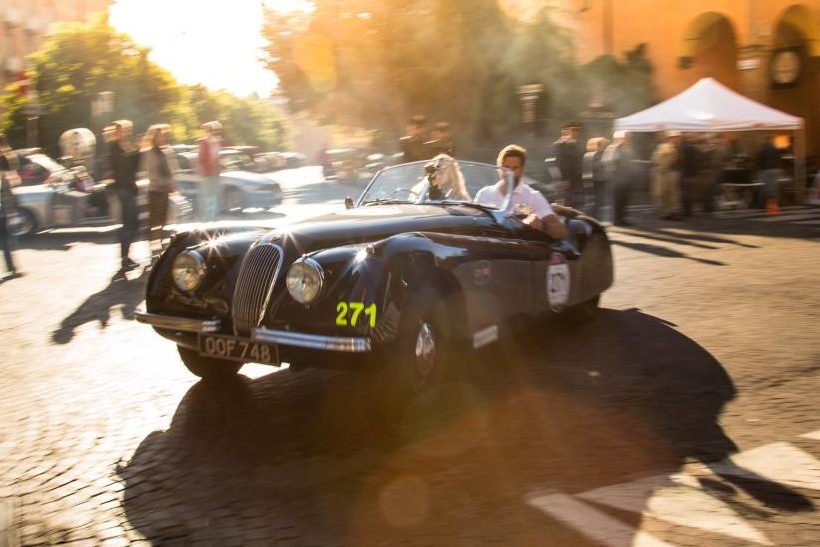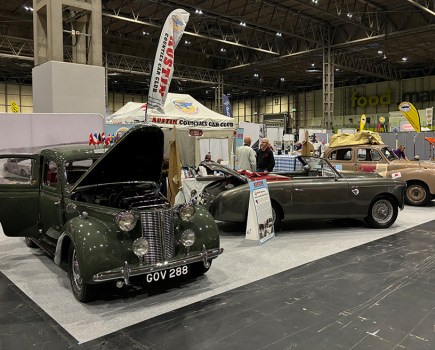An increasing number of clean air schemes across the UK and Europe could make life hard for historic vehicle enthusiasts this year.
London is slowly militating against classic cars aged less than 40 years old. Last year, we reported on the issues Transport for London (TfL) had with its Emissions Surcharge (T Charge) website; it was letting pre Euro 4 classics younger than 40 years old into the City without paying the supplement. Tax exempt Vehicles of Historic Interest (VHI) need only pay the Congestion Charge.
HEAVY OIL MEETS LEGISLATION
Under the remit of improving air quality, certain London boroughs are beginning to price classic diesels out of their area.
Islington Council already has a diesel surcharge in place for resident parking permits, and is planning to introduce it for diesel vehicles using short-stay visitor parking.
Later this year, a borough-wide diesel surcharge of £2 an hour will be applied to any oil-burner using Islington’s short stay parking bays, classics included.
The Council estimates that between 25 and 30 per cent of the 1.59 million short-stay visitor parking sessions are used by diesel cars; by discouraging their use, it’s hoped that air quality will improve.
Councillor Claudia Webbe, Islington Council’s executive member for environment and transport, said: “London is on the brink of an air-quality emergency, with traffic pollutants linked to health problems that are shortening the lifespans of residents. Islington straddles several major thoroughfares, with huge amounts of traffic putting out toxic diesel pollutants stopping in the borough every day.”
A TASTE OF THE FUTURE?
We’re already aware of Oxford’s city centre Zero Emissions Zone (ZEZ) consultation, which was closed to any classic vehicle concessions at time of reporting. Oxford and 28 other UK cities are struggling to meet pollution targets set by the European Union.
Devolved powers will allow city councils to set their own rules for access into and out of their boundaries – and one conurbation pursuing this is Leeds. It hopes to secure government funding to establish a Clean Air Zone within the city’s outer ring road.
The local authority wants to charge the most polluting buses and lorries £100 a day and taxis £12.50 a day. A public consultation on the proposals started on Tuesday January 2, finishing until Friday March 2. Classic Car Buyer wonders as to the future of historic vehicles passing into and out of Leeds – if commercial and private hire vehicles are under consideration, how long before pre-Euro standard petrol and diesel cars are scrutinised? We’ve long suspected TfL’s framework could be used as template; the results remain to be seen.
HISTORY [NOT] REPEATING
The Northern Italian cities of Turin and Milan – the former regarded as the cradle of the country’s motor industry – have also banned classics from their roads for the time being
Smog levels in Turin are currently pegged at ‘red’, leaving half-a-million cars and vans unable to use the city’s roads between 8am and 7pm every day in the hope of reducing pollution. Authorities recently extended the ban to Euro 5 standard petrol and diesel cars, giving no concessions to historic vehicles 30 years and older.
A similar situation exists in Milan, where, according to the Independent newspaper, “An ‘orange’ warning is in force, limiting vehicles classified as having Euro 4 emission standards or lower. Euro 4 vehicles include petrol cars, vans, minibuses and other specialist vehicles.”
The Independent went on to state that 85 municipalities across Italy’s Veneto region are limiting access to city centres – or simply banning cars outright.
Italy’s equivalent of the Federation of British Historic Vehicle Clubs (FBHVC), Automotoclub Storico Italiano (ASI), had begun to negotiate concessions for historic vehicles with the incumbent government. Unfortunately, political turmoil rendered its talks low priority, according to ASI spokesperson Mario De Rosa.
FEWER WAFFLES, MORE RESTRICTIONS?
Belgium’s capital city Brussels may not immediately spring to mind when considering the plight of historic vehicles in cities – but on Monday, January 1, authorities rolled out a new Low Emissions Zone (LEZ) covering all of its 19 municipalities. Similar in scope to the Crit’Air disc system used to control vehicle movement in Paris, classics aged 30 years and older will become exempt from emissions charges from this summer. At the same time – provided they are registered with city authorities – foreign historic vehicles of the same age will also qualify for exemptions, official website lez.brussels confirmed.
Pre Euro standard modern classic diesels built after 1988 will have to pay for access to routes into and out of Brussels from this year, for a maximum of eight days travel; owners of their petrol equivalents will have to register and fork out in 2019, with the same restrictions applied.








